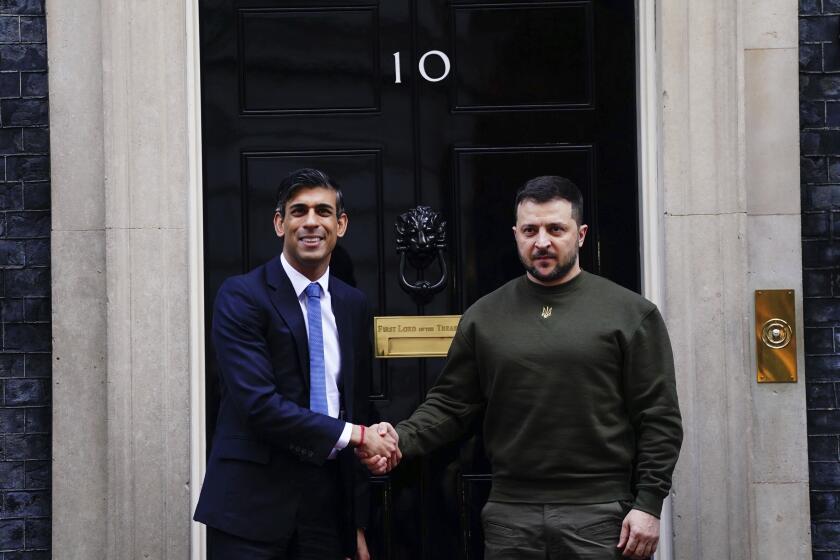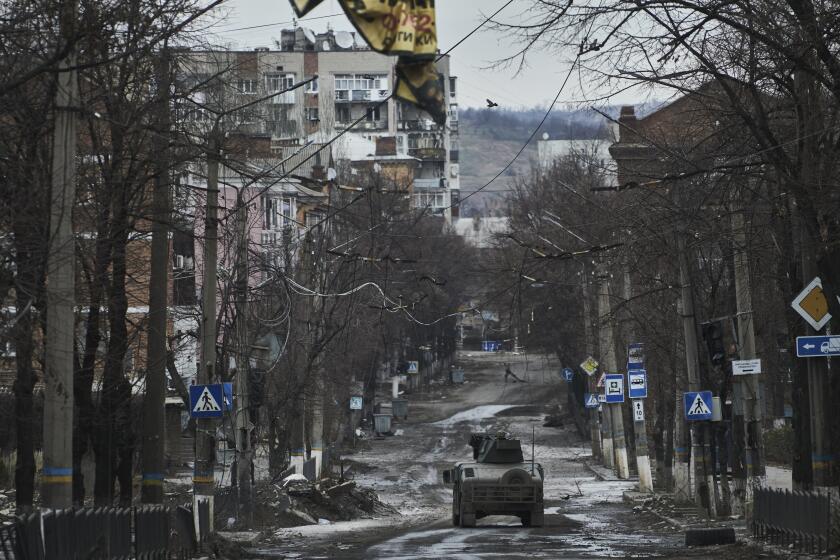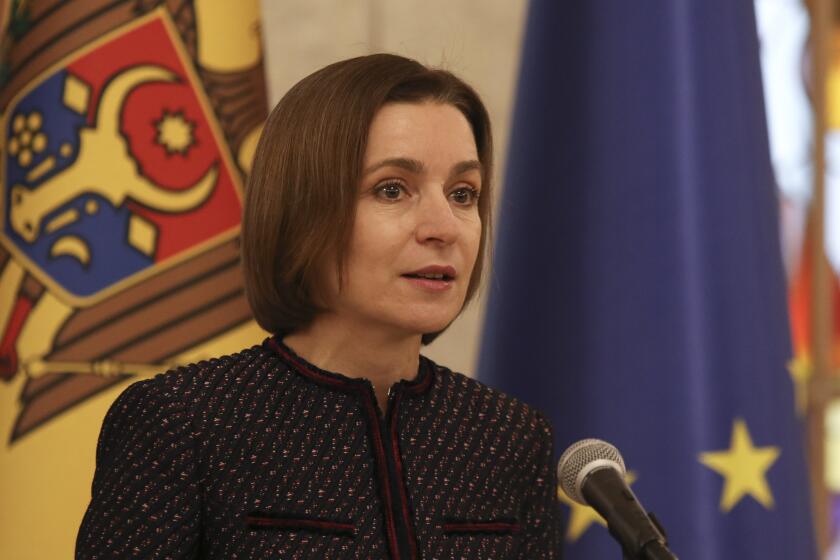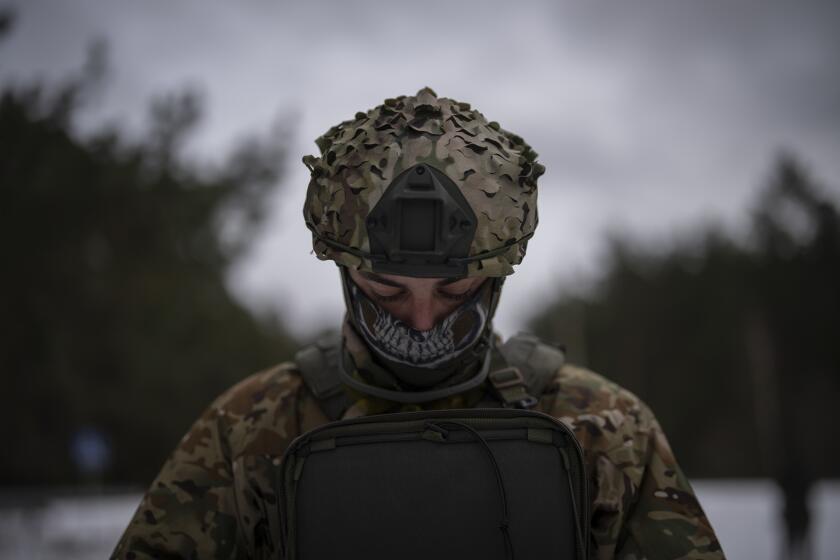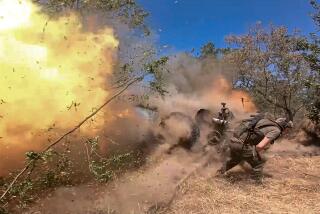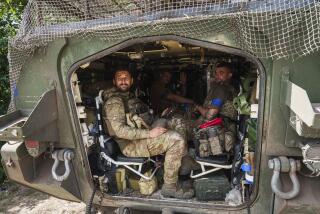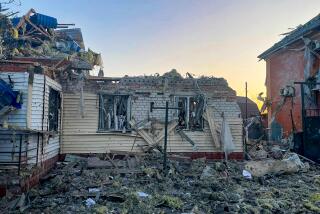Russia claims some minor progress in east Ukraine as it tries to recapture momentum
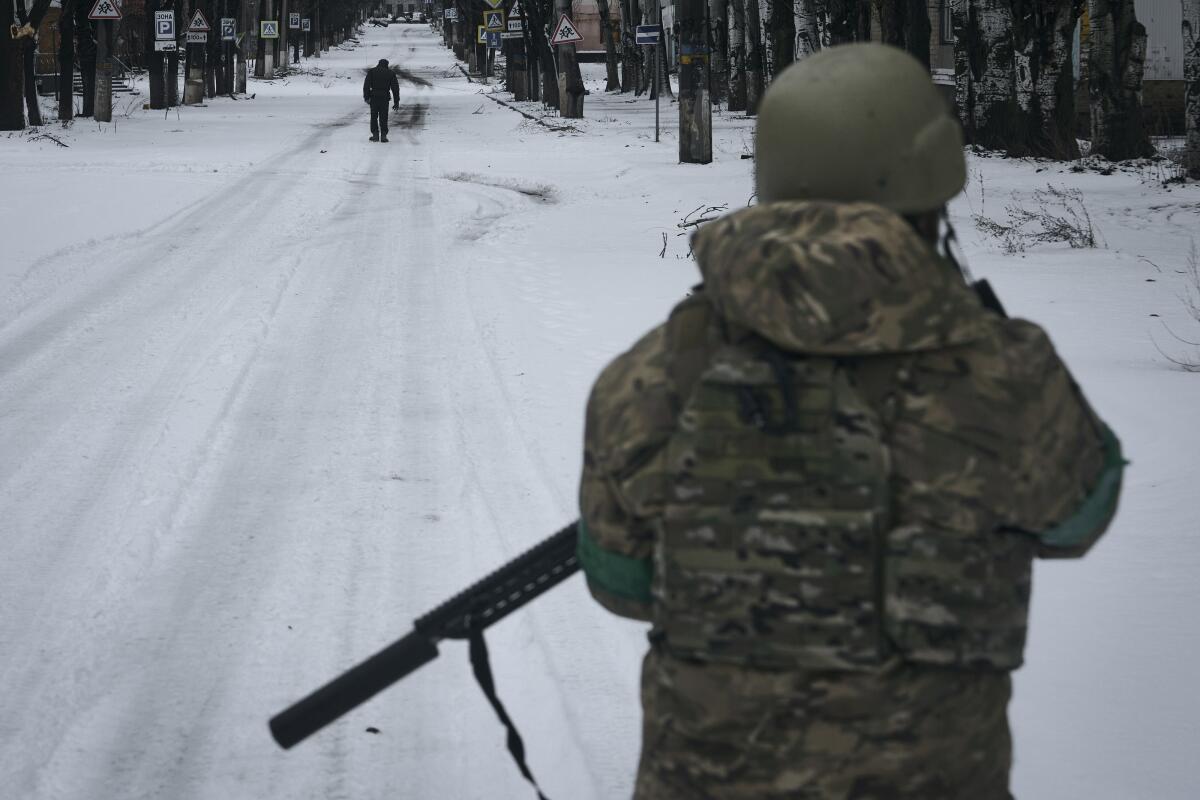
KYIV, Ukraine — Russian forces claimed some battlefield success Wednesday, as Moscow’s invasion of Ukraine labored to gain momentum almost a year after it began, while Ukraine said it needs another few months to stage its own offensive.
The Russian Defense Ministry said its troops broke through two Ukrainian defensive lines in the eastern Luhansk region and pushed back Ukrainian troops some two miles, forcing them to leave behind equipment and the bodies of those killed.
It was not possible to independently verify Moscow’s claim. Ukrainian officials made no immediate comment.
Russian artillery, drones and missiles have been relentlessly pounding Ukrainian-held eastern areas for months, indiscriminately hitting civilian targets and wreaking destruction, as the war largely slowed to a grinding stalemate in the winter. Moscow is hungry for some progress after months of setbacks.
Meanwhile, Ukrainian Defense Minister Oleksii Reznikov said his country’s forces would need “a few months” to learn how to use new Western weapons before they can try to push the Russians out of Ukraine.
The Donetsk and Luhansk regions, which together make up the industrial Donbas region bordering Russia, continue to bear the brunt of Russia’s bombardments as Moscow reportedly moves more troops into the area.
Ukrainian President Volodymyr Zelensky sought support in a surprise European tour, pushing for fighter jets to battle Russian invaders in a dramatic speech to the U.K. Parliament.
In Luhansk, the number of Russian ground and air attacks is “growing every day,” Gov. Serhii Haidai said on Ukrainian TV.
“The Russians were able to transfer new forces for the offensive and now they are trying to overwhelm us with sheer human mass,” Haidai said.
Donetsk Gov. Pavlo Kyrylenko said Wednesday that one town had come under nonstop fire from rocket launchers for more than three hours the previous day, damaging at least 12 residential buildings.
At least 12 civilians were wounded when Russian forces struck a five-story apartment block in the city of Pokrovsk, Kyrylenko said. At least two others remained under the rubble.
With the one-year anniversary of Russia’s war approaching, followed by improved spring weather, Western officials and analysts say the fighting could be nearing a critical phase, with both sides looking to launch offensives.
The Kremlin is striving to secure eastern areas it illegally annexed last September — the Donetsk, Kherson, Luhansk and Zaporizhzhia regions — and where it claims its rule is welcomed. Pro-Moscow separatists have controlled part of Donetsk and neighboring Luhansk province since 2014.
The longest battle of the war in Ukraine has turned Bakhmut into a ghost city fought over by Ukrainian troops and by Russian forces eager for a win.
“The enemy, trying to take full control of the Donetsk and Luhansk regions, continues to focus his main efforts on conducting offensive operations in the Kupiansk, Lyman, Bakhmut, Avdiivka and Shakhtarsk areas,” the Ukrainian military reported, referring to towns in the two provinces as well as on the eastern edge of the neighboring Kharkiv region.
Amid the fighting, Ukrainian Red Cross volunteers are evacuating patients from Donetsk hospitals to medical trains operated by Doctors Without Borders. The trains take patients to safer regions of Ukraine.
The battles are draining weapons stockpiles on both sides. NATO Secretary-General Jens Stoltenberg warned earlier this week that Ukraine is using up ammunition far faster than its allies can provide it.
Britain’s Ministry of Defense said Wednesday that Russia’s military industrial output “is becoming a critical weakness.”
Start your day right
Sign up for Essential California for the L.A. Times biggest news, features and recommendations in your inbox six days a week.
You may occasionally receive promotional content from the Los Angeles Times.
U.S. defense officials insist that Iran is helping the Kremlin sustain bombardments in Ukraine by supplying it with attack drones.
Kyiv’s continued defense of Bakhmut, a city that for months has been a key target of Russia’s campaign in the east, has been “strategically sound” because it sapped Moscow’s momentum, a U.S. think tank said.
Kyiv’s defense has “degraded significant Russian forces,” including units from the Wagner Group, a Russian private military contractor, the Institute for the Study of War said late Tuesday.
Some analysts had questioned the wisdom of Ukraine holding out in Bakhmut because it could hurt the chances of its expected spring offensive.
Moldova’s president has outlined what she says is Moscow’s plot to overthrow the Moldovan government and ‘put our country at the disposal of Russia.’
Meanwhile, support among the American public for providing Ukraine weaponry and direct economic assistance has waned, according to a new poll from the Associated Press-NORC Center for Public Affairs Research.
Forty-eight percent of those interviewed said they favor the U.S. providing weapons to Ukraine. In May last year, 60% of U.S. adults said they were in favor of sending Ukraine weapons.
Russian Foreign Minister Sergei Lavrov on Wednesday claimed that Western support for Kyiv’s war effort was prearranged, telling the lower house of the Russian parliament that “the U.S. and its satellites are waging a comprehensive hybrid war following years of preparation.”
Lavrov said a revised Russian foreign policy doctrine to be published soon would emphasize the need to “end the Western monopoly on shaping frameworks of international life.”
On the Belarusian border, Ukrainian drones monitor a long expanse of marsh and woodland for a possible Russian offensive from the north.
The war has caused widespread suffering, and the global economy is still feeling the consequences. Emerging economies, especially, have felt the crunch.
The United Nations’ humanitarian aid and refugee agencies said Wednesday that they are seeking $5.6 billion to help millions of people in Ukraine and countries that have taken in fleeing Ukrainians. That includes $1.7 billion to help some 4.2 million refugees who have fled to 10 host countries in Eastern and Central Europe.
The joint appeal is one of the largest of its kind for a single country, after those for Yemen and Afghanistan. Such U.N. appeals rarely get fully funded.
More to Read
Sign up for Essential California
The most important California stories and recommendations in your inbox every morning.
You may occasionally receive promotional content from the Los Angeles Times.
